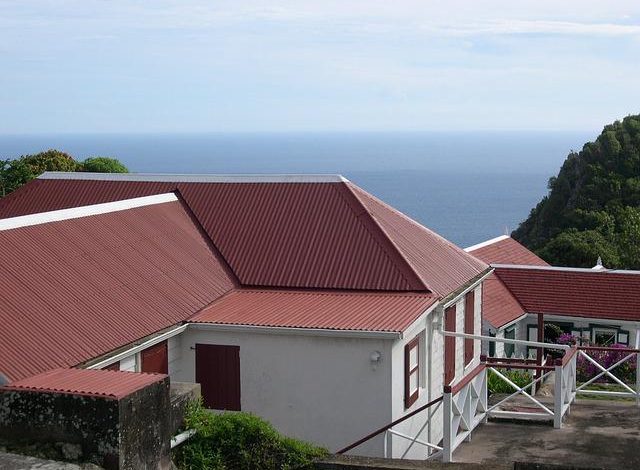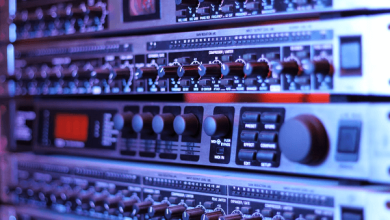Pros and Cons of Metal Roofing

Introduction
Over the years, metal roofing has gained a significant amount of market dominance. Compared to asphalt shingles, the metal roofing sector has been the winner in recent years. Metal provides a modern touch to the home’s design with benefits such as material cost-effectiveness, high lifetime, high resistance, and insulating properties.
Metal sheets or metal shingles have been given considerable prominence in the installation of residential structures, multi-story houses, and apartments in the United States.
People are increasingly choosing metal roofs due to their lifestyle and job ties to a single city. Metal roofs may be the best option if you live in an area vulnerable to rain and wildlife or if you plan to stay in a town for more than 20–40 years.
However, let us crack open everything, from the history to the affordability and benefits of metal roofing.
History of metal roofing
During the medieval period, metals and their alloys were widely used on rooftops. Copper was utilized as metal shingles for building temples, castles, and buildings among zinc, iron, and copper. Copper roofs were put on Lovamahapaya temple and Kronborg castle, two of the world’s most prominent structures. Metal as a roofing material, on the other hand, was first used on the roofs of the United States mint in New Orleans in 1837.
Pros of Metal Roofing
- Long-Lasting and High Durability
Metal roofs are highly durable, with a life expectancy of 40 to 80 years. The longevity can be much greater than usual, depending on the type of metal substance involved. With regular maintenance, such as preventing trees from scratching the roof, avoiding walking on the top, and cleaning the gutters, copper material can last for more than 100 years.
Because roofing is a one-time investment, investing in metal roofing eliminates the worry of roofs for many decades.
- Maximum Resistance
Depending on the material, water, fire, and corrosion resistance can all be rated differently. The class A variety is the most resistant to wildfire and non-combustible of all the types. Because the roof is coated with corrosion-resistant metals like zinc and zinc-aluminum, metal roofs are also resistant to corrosion. Metal roofs resist severe rain and wind damage and do not absorb moisture or water.
- Low maintenance
Metal roofs, unlike asphalt shingles, require yearly maintenance and repairs. If you want your metal roof to last for many more years, routine annual maintenance such as correcting dents, corrosion, and leaks can save you a lot of money in the long run.
- Highly recyclable
Roofing metal sheets and shingles can be recycled because metals are mainly recyclable. As a result, worn and old metal panels can be recycled into new metal roofing or used to construct cans, racks, or garden roofs. It can also be donated.
- Lightweight
When compared to other non-metallic roofing materials, metal roofs are lighter. Hence put less strain on the buildings. Metal roofing is multiple times more resistant and durable than any other roofing material, despite its modest weight.
- Energy-Saving
Metal roofs reflect light. They absorb heat and UV radiation and quickly cool down, saving 35–45 percent of home energy costs during the cold winter. The metallic material directs sunlight away from the house. Metallic roofing panels are an energy-efficient and cost-effective solution for buildings exposed to a long winter.
- Environment-friendly
One of the most significant advantages of metal roofs is their environmentally friendly features which cannot be overlooked. This is why metal roofing is so popular and essential. Metal roofing can withstand heavy rain, high winds, and hail. Heavy rains cannot damage the roofing due to its high durability, preventing corrosion and damage even during rainy seasons.
Cons of Metal Roofing
- Factor of Noise
Compared to other roofing metals, metal roofing has the disadvantage of nosing during severe rains and gusts, resulting in a loud sound. On the other hand, metal roofs can be insulated to avoid noise issues.
- Expense
Compared to asphalt shingles, metal sheets and metal shingles for roofing are 2-3 times more expensive. However, the advantages of metal roofing outweigh those of asphalt shingles.
- Colour
Metal roofs have a lifespan of more than 40 years. Finding the same color metal shingles as the existing roof can be difficult if you need to repair a crack after many years.
- Cracking
Seasonal changes cause metals to contract and expand. If the metal roofing is not installed correctly and covers a larger area than required, there is a risk of metal panel cracking.
Installation of metal roofing
It will be challenging if you don’t hire a professional to help you install metal roofing. The owner’s and contractor’s responsibility is to ensure that the installation is executed by a highly experienced person who can readily install standing seams and the task is completed quickly and efficiently.
It can be stressful to handle contracts with contractors and companies promptly and efficiently. Since there is a lot on the to-do list, such as shingle computations, received and pending milestones, and payment updates. You might miss a few details if you have such a long list to look through. As a result, advanced technology has provided solutions to such issues. Invoicing app for contractors aid you in completing simple transactions and streamlining your business services with clients.
Conclusion
The benefits of metal roofing outweigh the negatives. Noise is a disadvantage that can be prevented by insulating. Even though metal roofing is costly, you will not have to worry about your roofing system in the long term. There are a variety of colors and designs to pick from, so you can get the modern and inventive roofing you want. With the latest invoicing tools to assist business growth, collaboration with clients and contractors in the architecture industry has become more accessible. Metal roofing is in high demand because of its durability, recycling, fire resistance, capacity to tolerate severe rain, and corrosion resistance. Overall, metal roofing will not be regretted if it is well maintained and prevents people from walking on roofs.














